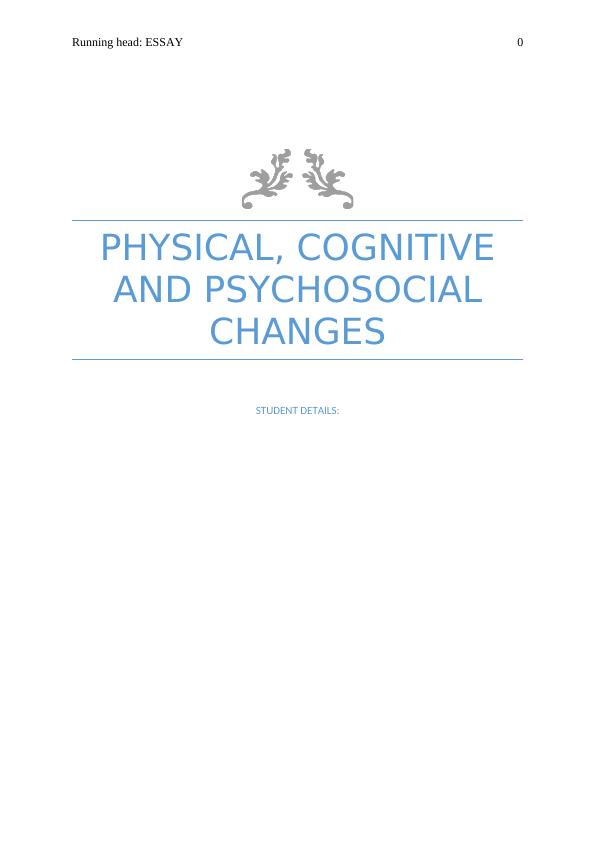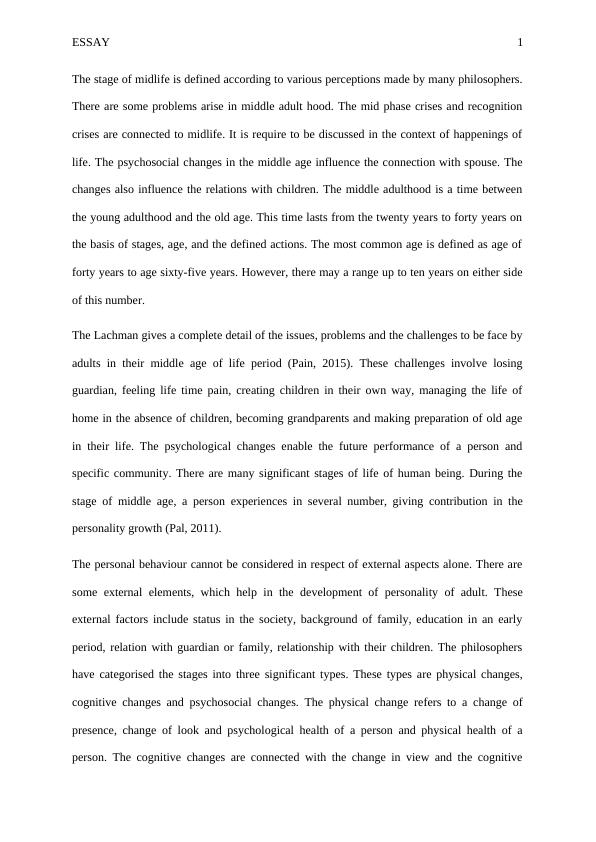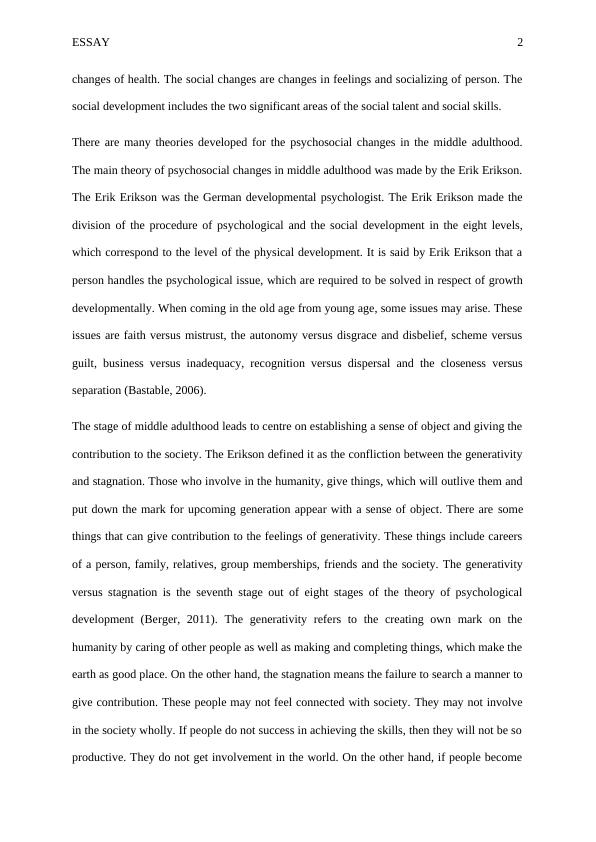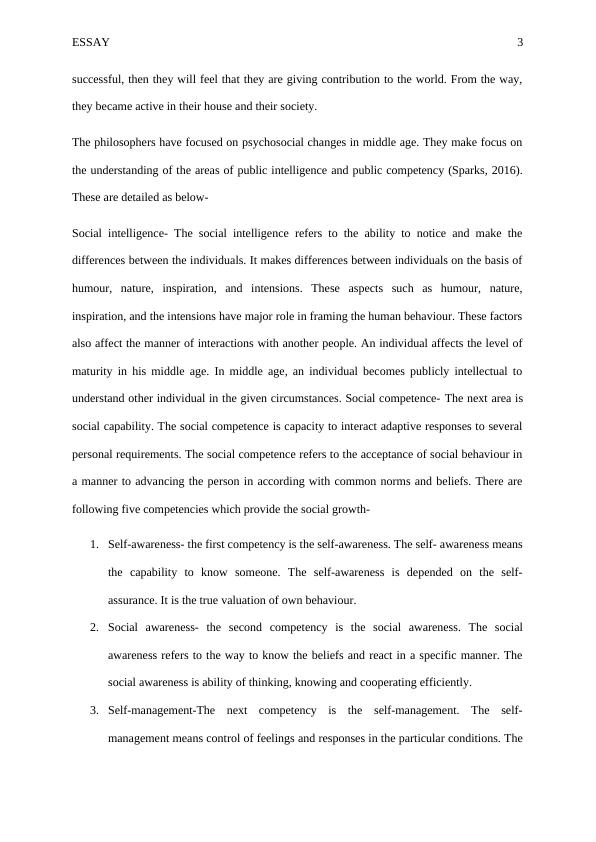Physical, Cognitive and Psychosocial Changes in Middle Adulthood
A 2500 word essay on the critical analysis of factors affecting health, well-being and illness through the later life course, evaluating theoretical perspectives of health, well-being, illness and social power and their application to adulthood and ageing.
11 Pages3145 Words445 Views
Added on 2023-06-09
About This Document
This essay discusses the physical, cognitive and psychosocial changes that occur in middle adulthood. It covers topics such as Erik Erikson's theory of psychosocial changes, social intelligence, social competence, cognitive development, menopause, and sexual changes. The essay also emphasizes the importance of effectively mastering each stage of development in order to avoid personal stagnation.
Physical, Cognitive and Psychosocial Changes in Middle Adulthood
A 2500 word essay on the critical analysis of factors affecting health, well-being and illness through the later life course, evaluating theoretical perspectives of health, well-being, illness and social power and their application to adulthood and ageing.
Added on 2023-06-09
ShareRelated Documents
End of preview
Want to access all the pages? Upload your documents or become a member.
Ego Integrity versus despair: The last stage of Erickson's theory
|3
|447
|469
Psychological Development of a Child Assignment 2022
|8
|2019
|19
Erik Erikson’s Psychosocial Theory of Human Advancement 2022
|13
|2966
|100
DEVELOPMENTAL PSYCHOLOGY.
|4
|462
|1
Report on Developmental Theories and Intervention Models
|11
|2111
|145
Human Relationships and Life Transitions: Understanding Psychosocial Development in Early Childhood
|6
|1746
|59




